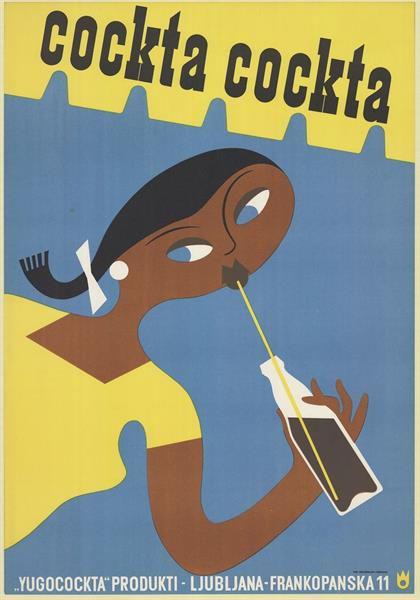
In the 1950s, Coca-Cola was conquering the world, but the iconic American soft drink wasn’t available in Communist Yugoslavia. A Slovenian company decided to offer a substitute – and created an iconic brand of its own.
In the interwar period, Emeril Zelinka owned a company that made syrups and liquor. As the manager, he made sure to keep in touch with the latest international developments and was proud of introducing new drinks to the market.
When Communists took power after World War II, Zelinka’s company was nationalized, and he got a job working for Slovenijavino, a large stare-owned corporation in charge of marketing wine, sprits, and soft drinks. In the early 1950s, Slovenijavino decided to introduce a domestic substitute for Coca-Cola, which was then taking Western Europe by storm but wasn’t sold in Yugoslavia. Zelinka was asked to come up with the recipe for the new cola.
Zelinka’s ingredients were all-natural, the types of products widely available in Slovenia: a mixture of herbs, caramelized sugar, orange, lemon – and, uniquely in a cola, rosehip extract. The proportion of the ingredients, however, remained a closely guarded secret.
At first, “Jugocola” was proposed as the name for the new drink, but ultimately Zelinka chose the name “Cockta,” from the English word “cocktail.” The cola was introduced to the market with something new for the time: a major advertising campaign. Slovenia was filled with posters for the Slovenian cola, many featuring a modernist, highly stylized design of a woman drinking Cockta from a straw. The campaign worked, and Cockta quickly became a commercial success.
In the 1960s, Coca-Cola finally appeared on the Yugoslav market, and the sales of Cockta began to decline. But an inventive television campaign launched in the late ‘70s helped to reverse the trend by making Cockta cool. The commercials appealed to the baby boomers’ sense of nostalgia and, to draw contrast with Coca-Cola, emphasized Cockta’s all-natural ingredients. Cockta managed to establish itself as a fully-fledged domestic competitor to the Atlanta-based giant.
After the dissolution of Yugoslavia, Cockta’s popularity continued to grow. For a time, several fake Cocktas even appeared in Serbia, then under a UN embargo, but with the end of hostilities, Cockta was able to recapture the former Yugoslav market, where it continues to enjoy considerable popularity. More than 60 years after it was created to replace Coca-Cola, Cockta – now owned by a Croatian multinational -- is one of Slovenia’s most beloved brands.

































































